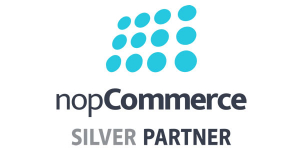Acceptable Use Policy
General Statement
Drundo Software is dedicated to the use of the Internet to improve the lives of individuals throughout the world. Our goal is to deliver enterprise quality on-demand IT Services to all of our Customers at a reasonable price and make available the benefits of the Internet as broadly as possible. The purpose of this AUP is to inform all Customers of the acceptable uses of the Services. Drundo Software is committed to encouraging the use of the Internet through its Services and Third Party Services, but such use must be consistent with the laws and regulations governing use of the Internet and must protect the right of its other customers to use its Services. The AUP is designed to achieve these goals. Customer agrees to comply with the AUP and is responsible for the use of the Services and Third Party Services by all entities and individuals whom Customer permits to use the Services, Third Party Services or the Customer Offering. In addition to its rights under Section 19.1 of the Terms of Service, Drundo Software has the right to change or modify the terms of the AUP at any time, effective when posted to the Customer Portal. Customer’s use of the Services or Third Party Services after changes to the AUP are posted shall constitute acceptance of any changed or additional terms.
Public Network
The Public Network of Drundo Software provides public Internet access to Customer servers and data storage services on Drundo Software’s network. All Customers are granted equal access to the Public Network.
Private Network
The Private Network of Drundo Software provides Customer with secure private network connectivity from Customer’s private backend network directly to Customer servers and data storage devices on Drundo Software’s internal network and to other Services. Customer may use the Private Network to upload/download content, administer Customer servers and data storage devices, transmit information between Customer servers and data storage devices, transmit information between Customer’s private backend servers and Customer servers and data storage devices provided by Drundo Software, administer the Customer Content, retrieve data, access server consoles, and otherwise manage the Customer Content. The Private Network can also be utilized for access during periods of temporary suspension of Services to Customer as provided under the MSA.
IP Addresses
The IP Address Policy (as described in the Terms of Services) which may be changed from time to time at Drundo Software’s sole discretion, is incorporated into this MSA by reference. Customer acknowledges and agrees to adhere to the IP Address Policy. All IP Addresses assigned to Customer are owned and managed by Drundo Software. Such IP Addresses are non-transferable, and Customer retains no ownership or transfer rights to such IP Addresses. All IP Addresses are assigned by the Drundo Software engineering team on a per VLAN, per server basis. Attempted use by Customer of any unallocated IP Address or any IP Addresses on VLANs not assigned to Customer is a violation of this AUP.
Prohibited Uses
The following list provides a number of general prohibited uses of the Services and/or Third Party Services that are violations of this AUP. Please note that the following list does not represent a comprehensive or complete list of all prohibited uses.
- Unlawful Activities. The Services and/or Third Party Services shall not be used in violation of any criminal, civil or administrative violation of any applicable local, state, provincial, federal, national or international law, treaty, court order, ordinance, regulation or administrative rule. This includes, but is not limited to:
- Unlawful gambling activities
- Threats, harassment and abuse of any individual, organization or business
- Fraudulent activities
- Terrorist websites or other sites advocating human violence and hate crimes based upon religion, ethnicity or country of origin
- Unlawful high yield investment plans, Ponzi schemes or linking to and or advertising such schemes
- Child Pornography: In particular, the Services and/or Third Party Services shall not be used to publish, submit, receive, upload, download, post, use, copy or otherwise produce, transmit, distribute or store child pornography.
- Unsolicited Email: The use of the Services and/or Third Party Services to send or receive mass unsolicited email (“SPAM”). This prohibition includes the direct sending and receiving of such messages, support of such messages via web page, splash page or other related sites, or the advertisement of such services. The falsifying of packet header, sender, or user information whether in whole or in part to mask the identity of the sender, originator or point of origin or knowingly deleting any author attributions, legal notices or proprietary designations or labels in a file that the Customer mails or sends.
- Email Bombing: The sending, return, bouncing or forwarding of email to specified user(s) in an attempt to interfere with or overflow email services.
- Proxy Email: The use of the Services and/or Third Party Services as a proxy email server to forward email to unrelated Third Parties.
- UseNet SPAM: The use of Services to send, receive, forward, or post UseNet unsolicited email or posts. This includes UseNet services located within the Drundo Software network or unrelated networks of Third Parties.
- Hacking: The use of the Services and/or Third Party Services or hacking, attacking, gaining access to, breaching, circumventing or testing the vulnerability of the user authentication or security of any host, network, server, personal computer, network access and control devices, software or data without express authorization of the owner of the system or network.
- Threatening Material or Content: The Services and/or Third Party Services shall not be used to host, post, transmit, or retransmit any content or material that harasses, or threatens the health or safety of others. In addition, Drundo Software reserves the right to decline to provide Services and/or Third Party Services if the content is determined by Drundo Software to be obscene, indecent, hateful, malicious, racist, defamatory, fraudulent, libelous, treasonous, excessively violent or promoting the use of violence or otherwise harmful to others.
- Violation of Intellectual Property Rights: The Services and/or Third Party Services shall not be used to publish, submit/receive, upload/download, post, use, copy or otherwise reproduce, transmit, retransmit, distribute or store any content/material or to engage in any activity that infringes, misappropriates or otherwise violates the intellectual property rights or privacy or publicity rights of Drundo Software or any other party, including but not limited to any rights protected by any copyright, patent, trademark laws, trade secret, trade dress, right of privacy, right of publicity, moral rights or other intellectual property right now known or later recognized by statute, judicial decision or regulation. Please refer to http://www.drundo.com/about/legal to file complaints or counter notifications related to copyright or trademark claims.
- Distribution of Malware: The storage, distribution, fabrication, or use of malware, including without limitation, virus software, root kits, password crackers, adware, key stroke capture programs and other programs normally used in malicious activity is prohibited. The use of such programs in the normal ordinary course of business, however, may be requested by Customer and approved by Drundo Software on a case by case basis. Example: Security company using the Services to analyze the latest root kit for new security analysis/software.
- Phishing: Any activity designed to collect personal information (name, account numbers, usernames, passwords, etc.) under false pretense. Splash pages, phishing forms, email distribution, proxy email or any activity related to phishing activities may result in the immediate suspension of Customer’s account.
- Violation of Agreements relating for Third Party Services. Any activity which violates any TPS Agreements.
- Denial of Service. Any activity to implement or assist in the implementation of denial of service attack. Drundo Software absolutely prohibits the use of Services for the origination, propagation or control of denial of service attacks (“DoS”) or distributed denial of service attacks (“DDoS”). Customers may not utilize the Services to perform DoS or DDoS mitigation activities (such as service proxying or data scrubbing) which may result in attracting inbound denial of service attacks toward the Services. Any relation to DoS or DDoS type activity is a direct violation of Drundo Software’s AUP.
Reporting Violation of the Acceptable Use Policy
Drundo Software accepts reports of alleged violations of this AUP via email sent to [email protected]. Reports of alleged violations must be verified and must include the name and contact information of the complaining party, and the IP address or website allegedly in violation, and a description of the alleged violation. Unless otherwise required by law, such as the DMCA, Drundo Software owes no duty to Third Parties reporting alleged violations. Drundo Software will review all verified Third Party reports and will take such actions as it deems appropriate in its sole discretion.
Drundo Software will comply with and respond to valid (as Drundo Software determines in its sole discretion) subpoenas, warrants, and/or court orders. If permitted by applicable law or regulation, Drundo Software will forward such subpoenas, warrants, and/or orders to Customer and Customer may respond; however, Drundo Software reserves the right to respond to any such subpoena, warrant and/or order if it is the named party in such subpoena, warrant, and/or order.
Methods of Resolution for Violations of Drundo’s Acceptable Use Policy
The goal of our Methods of Resolution is to mitigate service interruptions while resolving potential violations under this AUP. Our sales, support and abuse staffs are dedicated to working with the Customer in resolving potential violations, and are available via phone, ticket, or email. The Methods of Resolution below is provided for informational purposes only and forms the framework and guidance with respect to resolving potential violations, but in the event of any conflicts between the Acceptable Use Policy (in particular its enforcement) and Terms of Services, the Terms of Services shall control. Timing for resolution differs according to the degree of the violation, the nature of the violation, involvement of law enforcement, involvement of third party litigation, or other related factors.

